Breaking Barriers, Building Futures : Life Skills Education as a Pathway to Democratic Leadership for Adolescent Girls in Rural India
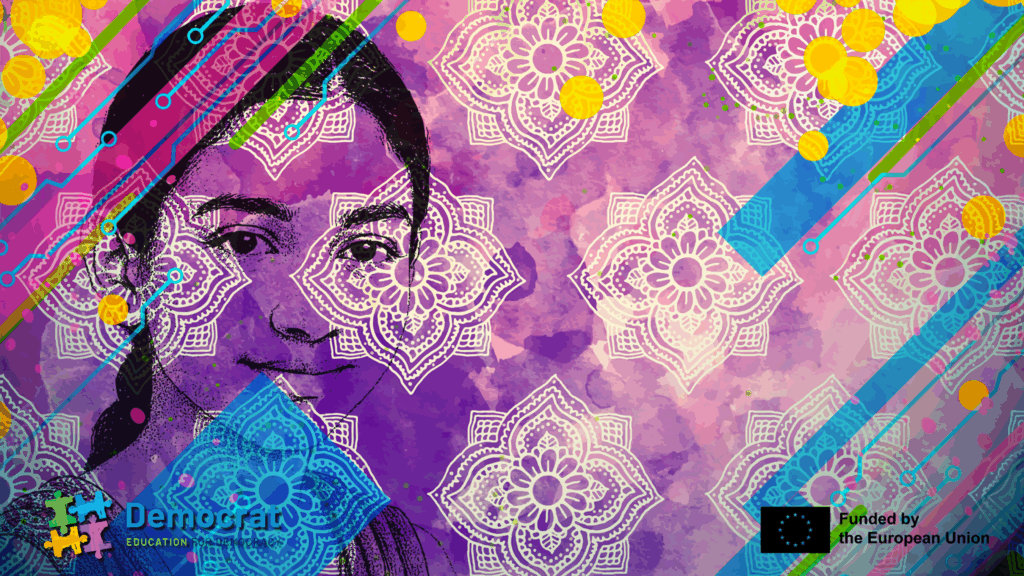
Table of Contents
By Sudha Sreenivasa Reddy
In the heart of rural India, where caste hierarchies, patriarchal customs, and poverty intertwine, the simple question— “What do you think?”—can be revolutionary. Among the adolescent girls I work with in Karnataka’s villages, most have never been asked for their opinion, let alone encouraged to express it. Yet, over the past two decades, I have witnessed how introducing life skills education in such contexts can ignite powerful changes—of voice, agency, and democratic participation.
This is not merely an educational intervention. It is a political process—an act of reclaiming dignity in the face of deeply entrenched exclusions. It is about practicing democracy from the ground up.
Why Adolescence Matters
Adolescence is a crucial time in a person’s life. It’s when young people begin to shape their identity, build dreams, and feel a sense of independence. But for many girls-especially those in rural and marginalized communities-this stage also brings vulnerability. Instead of gaining freedom, they often start to lose control over their own lives.
At a time when girls should be making decisions about their education, health, and future, those choices are often made by others—families, communities, or systems shaped by structural discrimination. These systems treat girls as less important, often seeing them as burdens or future wives, not as individuals with rights and dreams.
Because of this, girls may face early marriage, school dropout, poor health, and even violence. They may also learn to remain silent and accept injustice. Without support, these early disadvantages can affect them for life.
Supporting girls during adolescence is not just about helping individuals—it’s about challenging injustice and changing the systems that hold them back. It is a necessary step toward building democracy, equality, and justice for all.
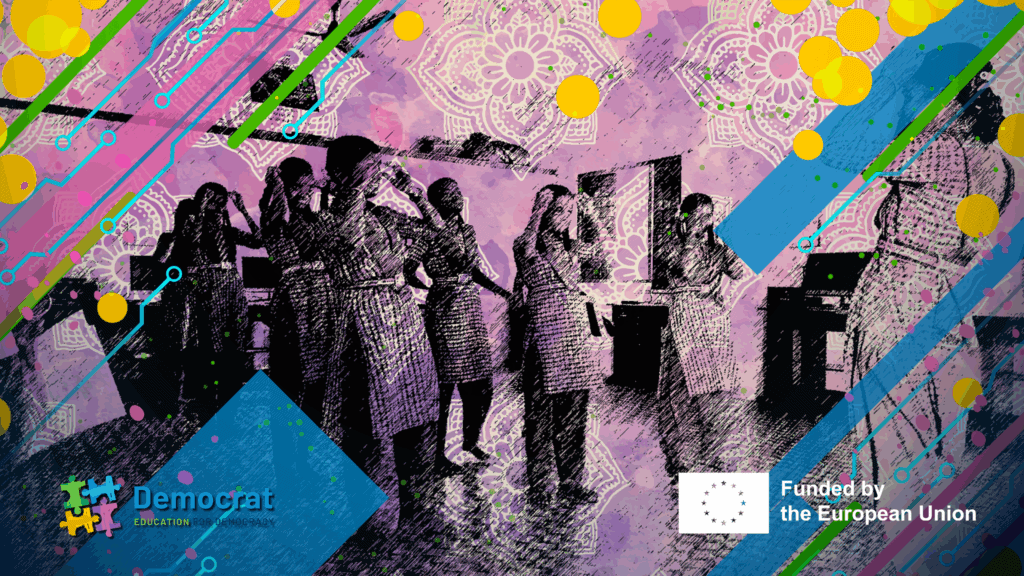
Rural Girls and the Weight of Silence
In traditional Indian societies, particularly in rural areas, adolescent girls carry a heavy burden of silence. Gender roles are rigid: obedience is valued over curiosity, domestic skills over education, and early marriage over personal ambition. Caste further complicates these realities, determining who speaks, who listens, and who remains invisible.
Many of these girls internalize inferiority early. Their lives are shaped by rules they had no hand in creating. Often, they drop out of school, remain uninformed about their own bodies and rights, and grow up believing their value lies in servitude and silence.
This is the backdrop against which I, along with a team of volunteers under the NGO Eco Foundation for Sustainable Alternatives (EFSA), began life skills education trainings—not by importing solutions, but by listening, observing, and learning alongside the girls.
Life Skills Education as a Democratic Practice
The life skills approach we developed is grounded in core values: critical thinking, self-expression, negotiation, consent, menstrual health, emotional literacy, and peaceful conflict resolution. Sessions are interactive—rooted in local languages and idioms, adapted to caste and gender dynamics, and always facilitated with deep respect for the girls’ lived realities.
This process is more than skills training. It is an invitation to participate in the project of democracy.
Girls begin to ask questions—about equality, power, health, safety, and their futures. They learn to negotiate with parents, speak up in school, and challenge the silence around menstruation and violence. They role-play conflict resolution scenarios, map power structures in their communities, and form peer support groups.
The act of speaking up becomes the foundation for leadership. And leadership, in our approach, is not charismatic individualism—it is collective, inclusive, and rooted in values of non-violence and dialogue.
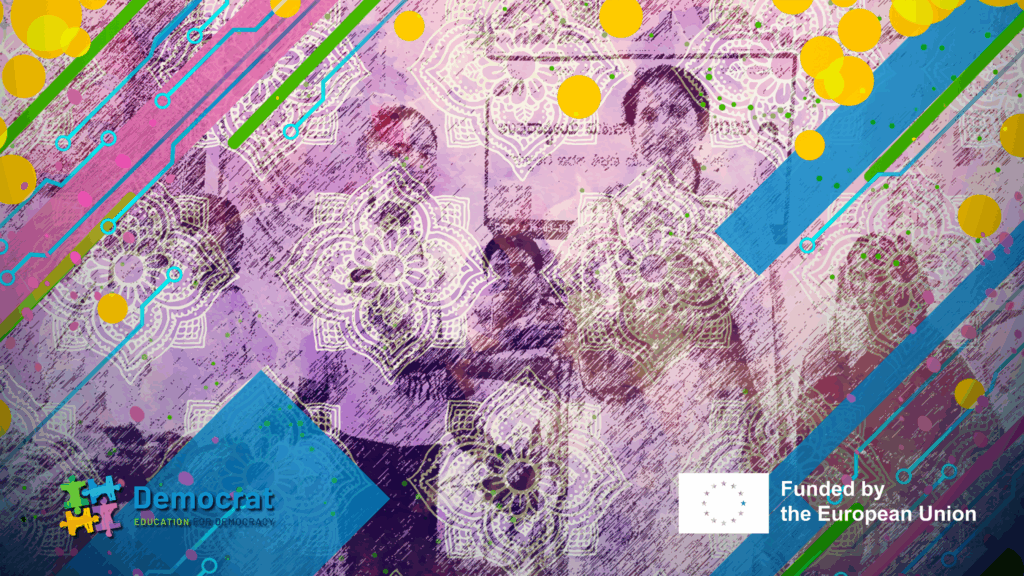
Integrating Rights and Responsibilities
Empowering girls with knowledge of their rights must be accompanied by an understanding of their responsibilities (UNICEF India, 2019).
In our sessions, we discuss the right to education alongside the responsibility to support peers in their learning journeys. The right to express oneself is paired with the responsibility to listen and respect others’ viewpoints. This dual approach fosters a sense of accountability and community among the girls.
Dialogue over Domination: A Feminist Political Ethic in Life Skills Education
At the heart of our work is a feminist ethic rooted in nonviolence, empathy, and shared power. We nurture a culture of listening and empathy, where disagreement is not punished but explored. Girls learn that there are many ways to resolve conflict—most of them non-violent. This is vital in a culture where young people, especially girls, are often denied the right to dissent.
We draw inspiration from Mahatma Gandhi’s words: “Non-violence is the greatest force at the disposal of mankind”. Nonviolence, in our approach, is not just about physical restraint—it is about cultivating a culture of care.
We also deconstruct the idea of authority. Leadership is shared, rotational, and decentralized. Decisions are made collectively. Every girl is encouraged to lead, listen, follow, question, and co-create. In a culture where young girls are rarely allowed to express dissent, this kind of participatory decision-making is a radical form of education in democracy.
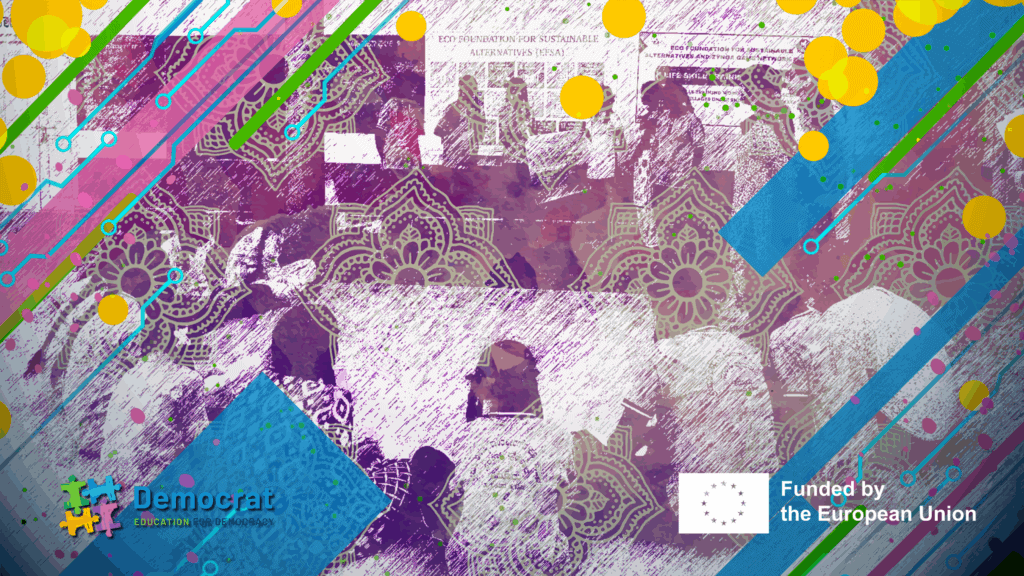
Engaging the Wider Community Through Life Skills Education
For such transformation to be lasting, it must extend beyond the girls. We engage mothers, fathers, teachers, and local leaders through community dialogues. Often, the first reactions are of resistance—but when families witness their daughters becoming more confident, responsible, and articulate, many begin to support the journey.
Internationally, similar approaches have proven effective. In Cambodia, the HerStory Campaign, in collaboration with Global G.L.O.W., empowers girls by promoting reading and fostering female friendships, challenging traditional norms through community engagement. (teenVOGUE). In Kenya, a survivor of female genital mutilation (FGM) founded a school that prohibits FGM and child marriage as enrolment conditions, transforming community attitudes and practices (TIME).
These examples underscore the importance of involving the wider community in supporting adolescent girls’ empowerment.
International Resonance of Local Practice
The stories and insights from the field, focusing on how life skills education – grounded in the everyday realities of adolescent girls in rural India – can nurture democratic leadership rooted in empathy, nonviolence, and justice. This approach offers a powerful alternative to standard classroom-based models of democracy education, which often fall short of addressing structural inequalities and the gendered lived experiences that define the realities of many in the Global South. What emerges from these grassroots initiatives is not only a model of democratic learning that is contextually grounded, but one that holds universal promise for inclusive, participatory leadership across cultures and borders.
Recommendations: Toward Democracy Education for All Girls
Our experience offers some key insights for international practitioners, educators, and policymakers working toward inclusive and democratic education:
- Recognize Life Skills Education as Core to Democratic Learning
Life skills must be seen as foundational—not auxiliary. Skills such as critical thinking, empathy, and communication are essential for nurturing active citizenship, especially in marginalized settings. - Embed Gender and Caste Consciousness (Indian context) in Curriculum and Practice
Education must actively address structural inequalities. Caste and gender sensitivity training for educators, inclusive curricula, and safe learning environments are non-negotiable. - Invest in Peer-Led and Participatory Models
Pedagogies must move from authority to agency. When girls lead and learn from each other, they develop authentic democratic confidence. - Engage Families and Communities as Partners
Change must be rooted in local realities. Community dialogues and intergenerational conversations help shift harmful norms and create collective ownership of girls’ rights. - Prioritize Decentralized, Context-Sensitive Approaches
Education policy should enable local, culturally grounded innovations. Grassroots organizations with deep community ties are best positioned to deliver transformative education
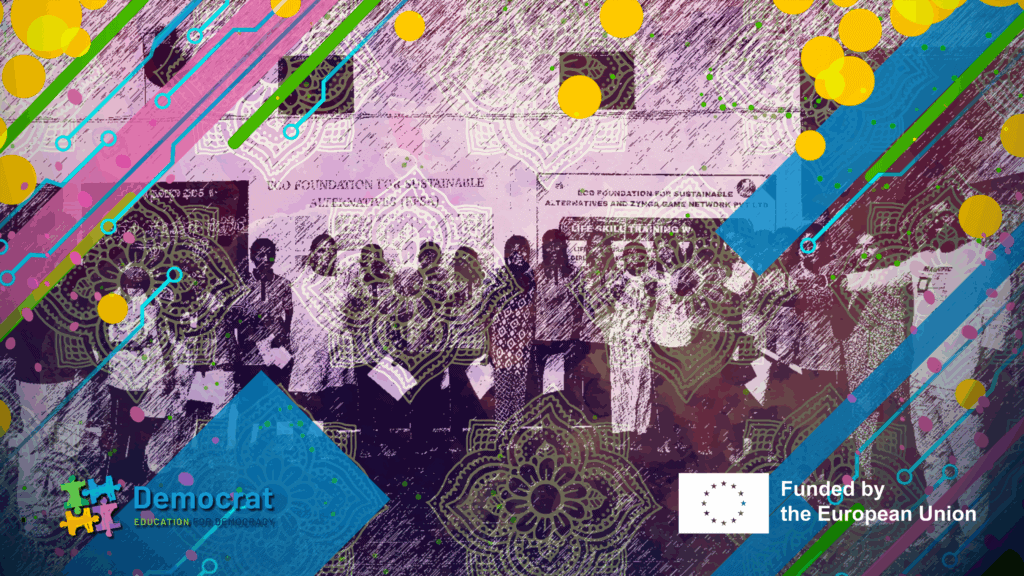
Whispers to Voices Rising
We often imagine democracy in terms of parliaments and laws. But it also lives in the silent moments when a girl says, “I want to go back to school,” or boldly declares, “I will not marry now.” These moments—personal, local, and full of courage—are what true democracy looks like.
The girls I work with are not passive recipients of knowledge. They are active builders of a more just and inclusive future. Their stories remind us that democratic education is not just about curricula—it’s about voice, values, and community.
Let us listen. Let us walk along with them
References
- UNICEF India. (2019). Comprehensive Life Skills Framework.
Retrieved from https://www.unicef.org/india/reports/comprehensive-life-skills-framework - UNICEF. (2023). Technical Note on Adolescent Girls’ Empowerment.
Retrieved from https://www.unicef.org/documents/technical-note-adolescent-girls-empowerment - The Hunger Project. (n.d.). India.
Retrieved from https://thp.org/our-work/where-we-work/india/ - Gandhi, M. (1948). Non-violence is the greatest force at the disposal of mankind.
Quote retrieved from AZ Quotes: https://www.azquotes.com/quote/709204 - Teen Vogue. (n.d.). The HerStory Campaign Empowers Girls Through Literacy and Leadership.
Retrieved from https://www.teenvogue.com/story/the-herstory-campaign-empowers-girls-through-literacy-and-leadership
- TIME. (2021). This Kenyan Woman Survived FGM. Now She Runs a School That Fights It.
Retrieved from https://time.com/6081461/fgm-kenya-school-girls/
More from Project Democrat
From Protest to Participation: Fostering Democratic Agency in Young People
Developing Good Democratic Education: A Participatory Approach by DKJS
Education for Democracy: Building a Peaceful Future Through Learning